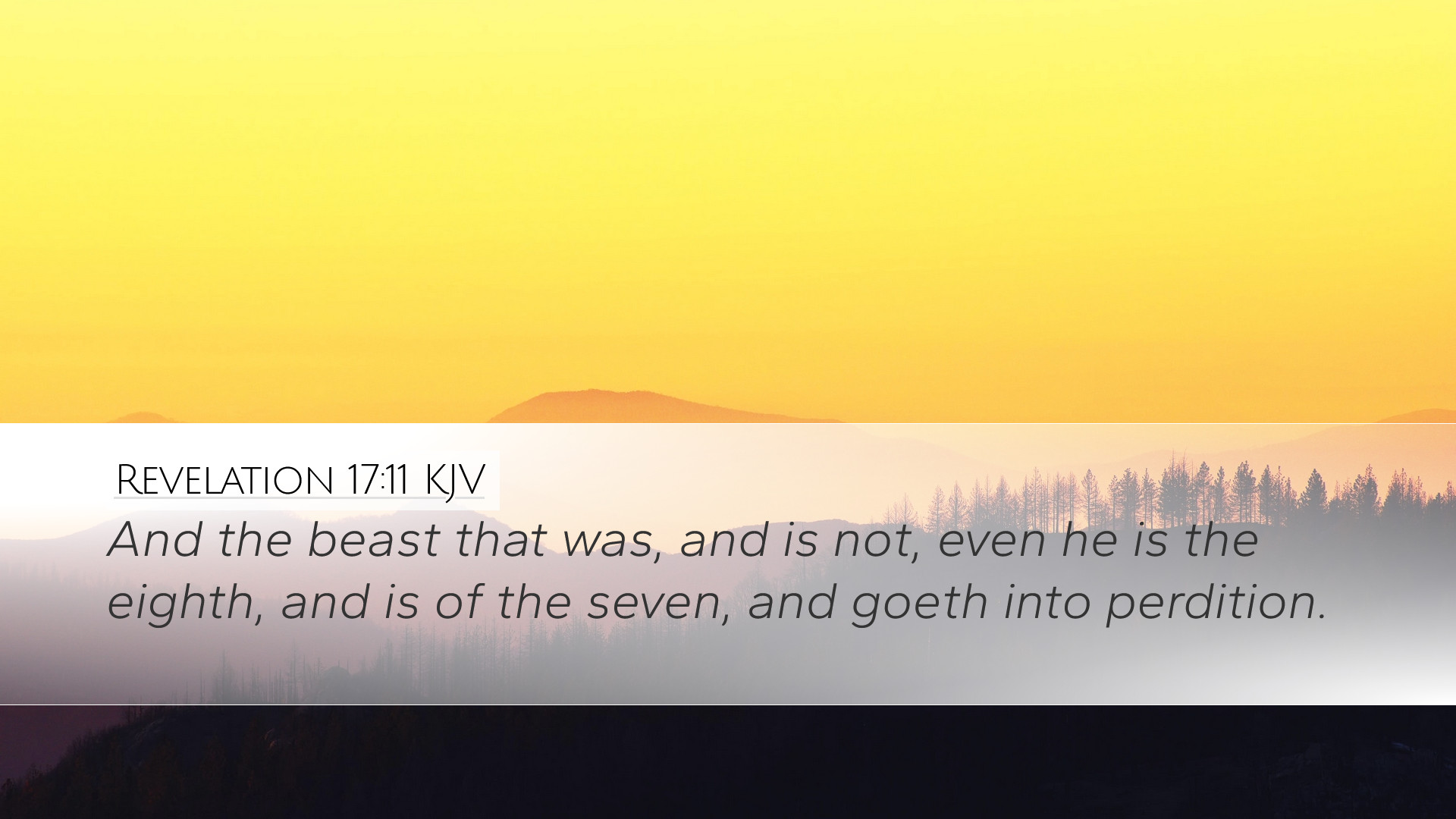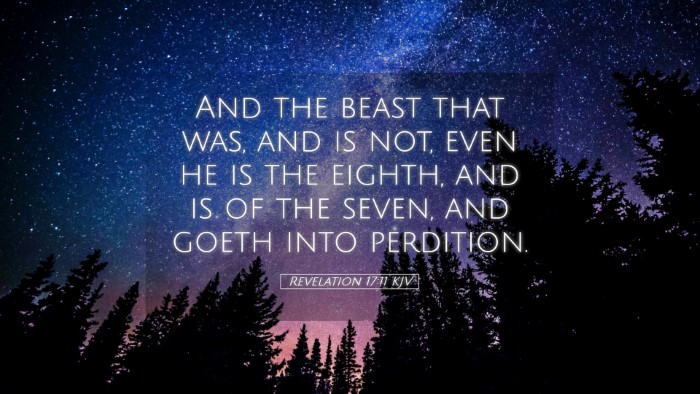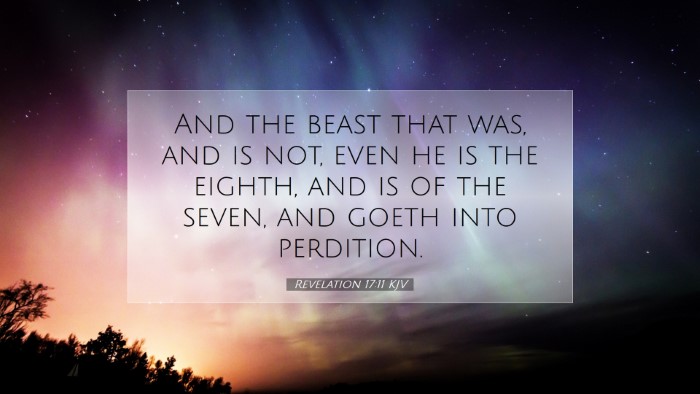Commentary on Revelation 17:11
Verse: "And the beast that was, and is not, even he is the eighth, and is of the seven, and goeth into perdition."
Introduction
This verse is nestled within the apocalyptic imagery and complex narrative style of the Book of Revelation. It is often interpreted as symbolizing both historical and eschatological events, conveying deep theological meanings concerning the nature of evil, the kingdoms of the world, and the ultimate fate of both.
Historical Context
The Book of Revelation, attributed to John the Apostle, emerges from a first-century context where Christians faced persecution. This letter not only serves as a prophetic vision but also offers insight into the struggle between good and evil. Understanding the identities of the "beast" can illuminate the Christians' plight and God's sovereignty amidst chaos.
Interpretation of the Beast
Matthew Henry highlights that the beast represents a powerful entity, often interpreted as a Roman Empire or a future oppressive regime. The phrase "that was, and is not" suggests a reality of a kingdom that once existed but has since ceased to function as it once did. The structure of "is of the seven" indicates that this beast has its origins in previous kingdoms, thus connecting to historical empires and their attempts to dominate.
Relation to the Seven
Albert Barnes elaborates that the "seven" kingdoms represent a series or succession of empires that have actively opposed God’s people throughout history. The eighth beast, then, can be interpreted as an ultimate culmination of all previous oppressive regimes, embodying the full spirit of rebellion against God. This further implies that the challenges faced by believers are not new; they are continuations of the battle between good and evil that spans generations.
The Eschatological View
Adam Clarke discusses the eschatological implications of the verse, suggesting that the "beast" references both historical oppressors and a future Antichrist figure. The phrase “goeth into perdition” speaks to the ultimate fate of this entity—complete destruction. Clarke posits that this verse serves as a warning to the faithful about the temporary nature of worldly powers contrasted with the eternal kingdom of God.
- Historical References: Acknowledges the significant empires, particularly Rome, in relation to the beast.
- The Nature of Evil: Suggests a continuing struggle against oppressors of God’s people.
- Final Judgment: Affirms the eventual triumph of righteousness over evil.
Theological Reflections
This passage exudes rich theological implications for reflecting on the nature of evil and the sovereignty of God. The visibility of the beast as coming from the "seven" encourages believers to understand that their struggles have historical precedents. It invites them into a larger narrative, unfamiliar to modern readers, where the cyclical nature of human governance often leads to a departure from divine order.
Pastoral Insights
From a pastoral perspective, understanding the beast's identity and its implications offers deep assurance to believers amid persecution. Churches can draw upon these themes in sermons to prepare congregations for enduring trials and could encourage resilience in faith. In teaching about the ultimate victory of good over evil, pastors can unite communities in hope and faith in God's profound plan amidst worldly unrest.
Conclusion
Revelation 17:11 is rich with meaning and requires careful study. By synthesizing insights from commentaries, we see that this verse serves as both a warning and an assurance. It encapsulates the true nature of opposition faced by God's people throughout history and emphasizes the certainty of divine justice. For pastors, theologians, and students alike, the call is clear—to remain vigilant, faithful, and hopeful in the face of worldly chaos, knowing that ultimate victory belongs to the Lamb of God.


